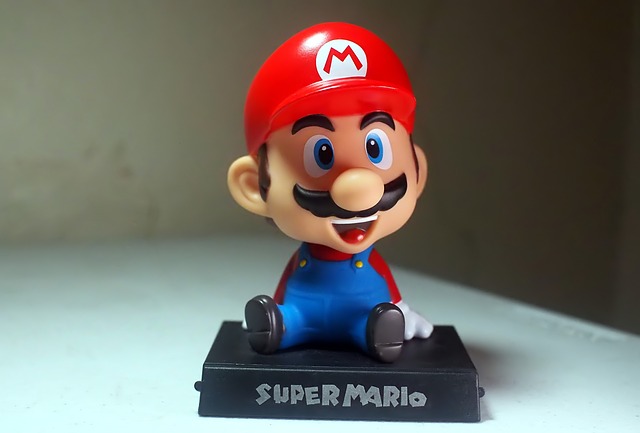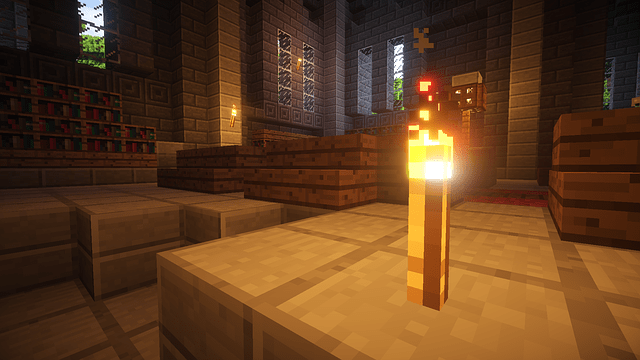One of the biggest stories in 2021 — a year full of big stories — was the rise of NFTs. As they get more popular more people also dislike them, so I’ve written up a counter-argument defending NFTs in video games.
What began with projects like CryptoKitties and CryptoPunks has now attracted the attention of artists, investors, institutions, and even scammers due to the ludicrous amount of money that could be made from selling JPEGs.
Now major video game companies are looking to get in on the action, including:
On paper, these developments make sense; after all, many of these are publicly traded companies with poor shareholders to feed.
But many gamers are upset with their industry’s adoption of this latest trend and have expressed their complaints on social media. In fact, this harsh backlash has led GSC Game World and SEGA to rethink their own forays into non-fungibility.
But what’s the big deal— why are people so upset about NFTs? Is it possible that the historically cool-headed gaming community might be overreacting, and that blockchain technology is actually based?
I would like to lay out the case that NFTs and gaming are a match made in heaven. By highlighting the positives and discussing some potential solutions to the negatives, you might finish reading this op-ed with a newfound perspective on this impressive technology and a positive outlook on its future.
However, it’s far more likely that you’ve already stopped reading and are talking shit in the comments section. But for those of you who are capable of considering alternative perspectives, please hear me out!
What are NFTs?
First, here’s a quick and dirty list of terms to get us all on the same page:
- Blockchain: This is a decentralized public ledger, which means it’s a collection of information anyone can see that is hosted peer-to-peer. Bitcoin is hosted on its own blockchain, Ethereum and all ETH-related projects are hosted on its own blockchain, and there are several other blockchains such as Tezos, Polkadot, Solana, and Cardano that host their own tokens and NFT projects.
- Cryptocurrency: These are digital currencies such as Bitcoin, Ethereum, and Dogecoin that are tracked on a blockchain using cryptography.
- NFT: Short for Non-Fungible Token, these are units of data stored on a blockchain that signify ownership of a scarce digital asset.
Both cryptocurrencies and NFTs require blockchain technology, but the difference between the two is fungibility. One BTC is essentially identical to another BTC, one ETH is identical to another ETH, but one NFT is not identical to another NFT.
NFTs can come in many shapes and sizes. The most popular implementations of NFTs are images and videos— but theoretically, any digital file can be made into one.
These are extreme oversimplifications and you would be better off looking elsewhere if you’re really interested in learning more. But for the sake of this article, these definitions should be adequate.
Now let’s discuss what NFTs have to do with video games:
Understanding the Debate Surrounding NFTs and Gaming
The way I see it, there are three sides:
- Optimists: This side of the debate is made up of techbros with utopian visions of the future, entrepreneurs who want to make bank, and a rogue’s gallery of scammers, hackers, and criminals— as well as their unfortunate victims who buy into the hype because of FOMO. And me!
- Pessimists: This side is full of environmental activists, consumer rights advocates, anti-capitalists, and people who dislike the current crypto community for their many speculative, exploitative, and outright criminal practices.
- Neutral: This side is made up of people who don’t fully understand the technology, don’t really care about it, and/or are sick of hearing about it— unless there’s an opportunity to dunk on someone else. If you’re one of these people, this op-ed is for you.
Let’s discuss the positive perspective first:
The Optimistic Case for Defending NFTs in Video Games
The way I see it, NFTs in gaming could be beneficial for all parties in the video game industry. Even in their current state, there are immediate benefits for both game players and game creators.
For Game Publishers
Consider Digital Rights Management. It’s controversial but extremely important for AAA game companies that need to guarantee a return on their multi-million dollar investments. The most ubiquitous form of DRM right now is Denuvo, which is bloated, error-prone, and universally hated among gamers. Also, it hasn’t really stopped anyone from pirating games— it just kind of slows them down.
The solution is simple: everyone who owns a legal copy of the game is given an NFT. Each time the game launches, it checks the blockchain to confirm the user has a valid token; if they don’t, the game won’t start. There are limitations to this, since it still requires an always online connection, but it’s leaps and bounds better than current forms of DRM.
For Game Designers
In the same way that this technology can be applied to DRM, clever game designers can use NFTs for leaderboards and achievements. If a player earns a high score or accomplishes an incredibly difficult task, they can be rewarded with a shiny badge to add to their collection.
But considering how this technology uses smart contracts, it’s possible that an especially brilliant dev team with the right tools and resources can make entire games as NFTs. Someone will eventually figure out a way to run DOOM on an NFT; don’t ask me how, I just know it will happen eventually.
Depending on the speed and security of the blockchain that the developer chooses to use, turning certain aspects of their games into NFTs could safely offload some of the network-related duties, reduce development costs, and improve server performance in other areas. But in all fairness, the added utility for these applications is negligible and little more than a gimmick.
A more lucrative use for this technology would be to throw in NFTs as a bonus for preorders or crowdfunding campaigns. However, the most economically beneficial implementation of this tech by far is in paid item shops and DLC— a fact that Ubisoft clearly understands.
For Gamers
NFTs used for paid item shops, DLC, and preorder/crowdfunding bonuses provide the most obvious benefits for game developers and publishers. Consequently, it’s the clearest path forward for these companies in the near future, which has gamers concerned.
But before we get into the entirely reasonable criticisms around this practice, let’s consider the potential upside.
As Yosuke Matsuda mentioned in his open letter, NFTs make it easier for gamers to financially benefit from playing games, and it offers them an easier path to compensation when creating mods or custom content. There’s a historical precedent for this— just look at the player-run economies around Second Life, EVE Online, and CS:GO. However, the incentives for contributing to game development and the in-game economy are limited to passion projects, and turning these assets into money is very difficult.
The potential for adopting popular blockchains with tradeable tokens makes compensation more viable. Suddenly, all the achievements and cosmetics you spend hours grinding to earn could hold value as digital assets. And in a world where traditional assets like stocks and property are becoming harder for regular people to obtain, this could be your best bet at upward financial mobility.
Think of it this way: in the near future, it may be possible for you to use a financial portfolio of TF2 Earbuds, Runescape Partyhats, and shiny Pokemon to take out a personal loan! (None of this is financial advice. Do not attempt to build a portfolio of rare video game cosmetics and go into debt without talking to a financial professional first.)
The Pessimistic Case for NFTs in Video Games
That was a lovely little fantasy I laid out above, but now it’s time to return to reality.
All of the potential upsides to adding crypto and NFTs to gaming are purely speculative; there’s no guarantee that any of these things will happen, and with the number of roadblocks standing in the way of their adoption, it appears highly unlikely at this time that any of it will ever happen.
Here are some of the strongest arguments against getting involved with NFTs in video games— or really any crypto project at all.
Environmental Concerns
Both Bitcoin and Ethereum run on blockchains that use Proof-of-Work consensus mechanisms. This is an extremely power-hungry process that causes a staggering amount of emissions. One calculation estimates the carbon cost of minting an NFT at 14 times greater than sending an art print in the mail— and that’s excluding several steps in the process that could cause an even larger footprint.
There are attempts at mitigating the massive environmental impact this technology causes, such as using clean energy to power mining rigs and using alternate consensus mechanisms such as Proof-of-Stake. However, these fixes may not come in time or have a substantial enough impact to save our planet from irreparable damage.
Anti-Consumer Practices
Consider Konami’s pivot into Pachinko machines, Square Enix’s obsession with “Games as a Service,” Ubisoft going back on their word about For Honor’s offline compatibility, and the laundry list of broken promises from Peter Molyneux. You would have to be born yesterday to trust any of these companies to act in the best interest of their customers.
When you consider the notorious gas fees associated with every crypto-related transaction, it’s not unreasonable to assume that implementing this tech could cause a return to the arcade-style pricing model. And there’s no guarantee that any NFTs minted by these companies won’t be devalued, delisted, or abandoned entirely if they don’t achieve their desired results. Just look at Google Stadia or the Wii U if you want to see how quickly a game company can ditch a novel concept that doesn’t provide immediate returns.
Economic Risk
Spend a little time browsing rekt.news and you’ll see several stories of promising DeFi projects with millions of dollars in value crash and burn due to shoddy code, social engineering, or fraudulent practices. And that’s just one part of the story— there’s also the Mt.Gox hack, the BitConnect Ponzi scheme, the Silk Road scandal, and pretty much every single project on the Binance Smart Chain.
For every self-made crypto millionaire, there are thousands of victims who lost their life savings and went into crippling debt. And with so little regulation or opportunities for financial restitution, the risks associated with any crypto-related business venture are astronomical. So why would you assume video game-related crypto projects would be any different?
My Rebuttal
These are very big problems that lack clear solutions at this point in time. But that’s part of what makes this technology so appealing— it’s a new digital frontier with gold in the hills. So in the interest of advancing the ongoing dialogue around NFTs in video games, consider these counterarguments to the negatives listed above:
It Can Level The Playing Field
One of the best parts of blockchain technology is its decentralized P2P nature. It’s true that blockchains aren’t foolproof; there’s always the risk of a 51% attack if the network becomes too centralized. This incentivizes blockchain projects to decentralize their networks, which necessitates making their platforms more accessible to ordinary people.
It’s theoretically possible that a AAA gaming company with deep pockets can attempt to create an entirely centralized blockchain to handle their NFT platform: something like Steam or the Epic Games Store. This is tempting because it would provide them with a monopoly on all transaction fees. However, when you consider how common it is for these companies to get hacked — especially when there’s a lot of money to be made from successfully pulling it off — it becomes a much safer option for them to use a decentralized model instead.
Using a platform that anyone can contribute to also allows AAA companies to benefit from tokenomics in a similar way to publicly traded companies. Gamers would have the opportunity to own governance tokens for any blockchain platforms used by game designers and publishers, which would allow them to literally seize the means of production.
AAA Games Need to Evolve
When indie hits like Stardew Valley, Minecraft, DUSK, or Undertale can be thrown together by small teams on underpowered game engines and outsell the latest BioWare title that cost hundreds of employees and millions of dollars to make, it makes it difficult to justify the latter as a business strategy.
Part of the reason why seemingly every big-budget game has you climb a tower to find all the bad guys while filling out a skill tree and hunting down crafting materials is because they need to guarantee a return on their monumental investment, and a homogenous lowest-common-denominator design philosophy is the best way to do this.
It’s tempting to want companies like EA, Epic Games, and Ubisoft to go away, but the fact remains that they are a vital component of the gaming ecosystem. AAA games attract new players, which are the lifeblood of the community. They also help to develop new tech that eventually makes its way down to independent game developers, such as Source, Unreal Engine, and rollback netcode.
Basically, letting the big guys play around with alternate monetization schemes like corny “Memorial NFTs” may eventually lead to something like the Unity game engine that makes blockchain compatibility easily accessible for indie devs.
Wait and See
Look, I realize the current state of NFTs. I think those apes look as stupid as the rest of you, and it’s clear that most of the people involved in this technology right now are grifters.
But the most important thing to understand is that NFTs are very, very early in their development and implementation. People are still coming to terms with the possibilities presented by blockchain technology, and the infrastructure itself is still being built up. Many of the issues currently impeding their successful implementation, such as power consumption and accessibility, will likely be resolved in the near future.
Accepting the arguments I’ve laid out here requires you to have an optimistic outlook on the future, but consider this last point: one of the most common motivating factors for NFT pessimists and neutral parties is a belief that this is a fad and a desire to see it go away, akin to an ostrich burying its head in the sand.
In my opinion, this is not a fad, it is not going away, it is going to continue to have a growing impact on the world, and it will eventually affect your video games. So if you want to have any say in the future of this industry, you should learn about this tech and its applications. Consider it an important aspect of financial literacy in the information age.
And if you really want to piss off your parents, buy real estate in an imaginary place! (Also not financial advice.)
This is an editorial piece. The views and opinions expressed in this article are those of the author and do not necessarily represent the views and opinions of, and should not be attributed to, Niche Gamer as an organization.
Source: https://nichegamer.com/opinion-defending-nfts-in-video-games/



